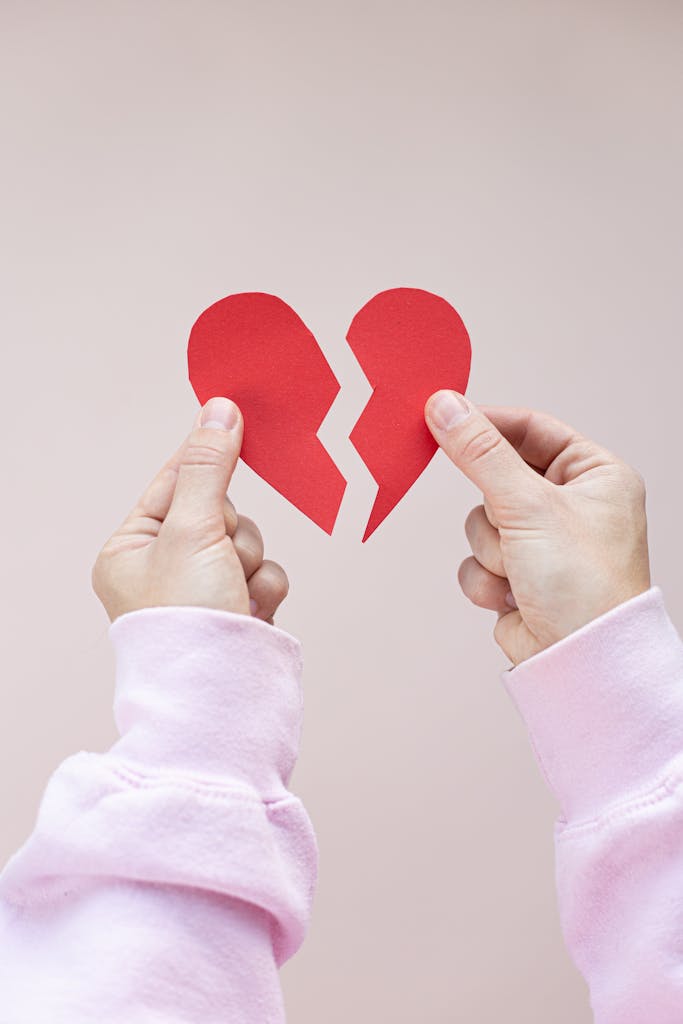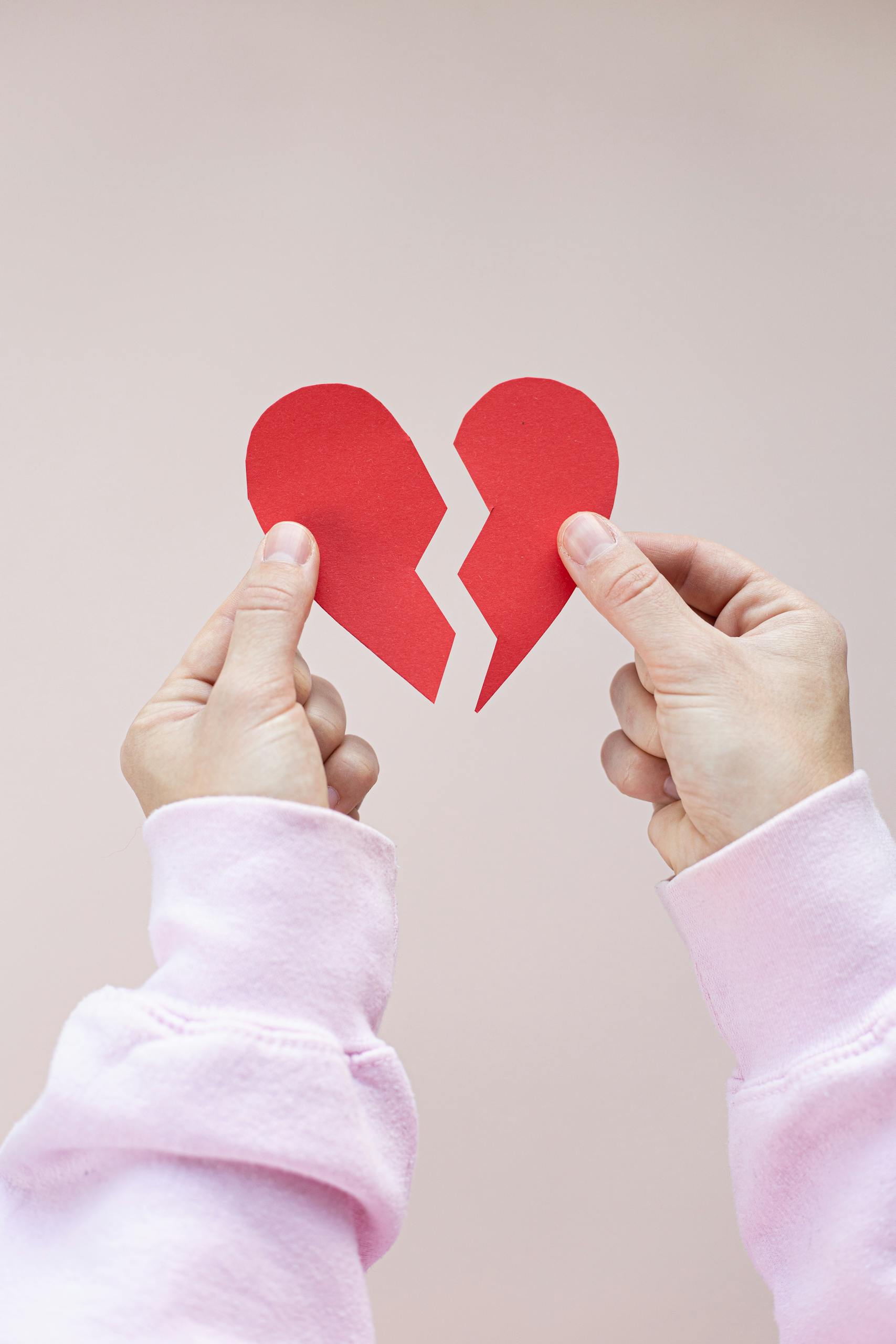The 5 Emotional Stages of Healing After a Breakup
Introduction
Breakups are undeniably painful, often sparking a variety of intense emotions. Whether it’s mutually agreed upon and ends on good terms or a sudden separation, understanding the stages of emotional healing after a breakup can help individuals process their feelings in a healthy way. While each person’s journey is unique, there are common emotional stages many people experience as they move forward after a breakup. This article delves into these stages, backed by psychological theories and recent research, offering insights on how to navigate them for better mental health and well-being.

Understanding a Breakup
A breakup can feel like one of the most intense emotional experiences an individual goes through. Relationships often become a central part of our identity and daily routine, which makes the process of separating emotionally and physically from a partner particularly difficult. When a breakup occurs, it’s not just the loss of the relationship that hurts—it’s also the loss of the future you envisioned with that person. This can trigger a range of emotions, from sadness and anger to confusion and even relief, depending on the circumstances.
Psychological Perspective: Breakups often involve feelings of rejection, which research shows can activate areas of the brain associated with physical pain (Kross et al., 2011). This underlines why breakups feel so intense, as the body interprets emotional loss similarly to physical injury. In understanding a breakup, it’s crucial to acknowledge the weight of these feelings rather than dismissing them. By accepting the natural emotional responses and recognizing the grieving process involved, individuals can begin to heal.
Each breakup, like every relationship, is unique. While some individuals may move on quickly, others may experience prolonged periods of emotional turmoil. However, it’s essential to remember that with time and the right strategies, healing and personal growth are possible.
The 5 Emotional Stages of Healing
1. Shock and Denial
The initial response to a breakup often involves shock and denial, especially if the breakup is unexpected or abrupt. This stage typically mirrors the denial phase of Kubler-Ross’ stages of grief, as individuals may struggle to believe the relationship has truly ended. Denial, in this sense, acts as an emotional buffer, giving the mind time to process the breakup’s emotional weight.
Research Insight: According to studies, the brain responds to the rejection of a breakup in similar ways to physical pain. A study by Kross et al. (2011) found that social rejection, like that experienced in breakups, activates the same brain regions as physical pain. This reinforces how profound the initial shock can be.
Coping strategies:
- Acknowledge your emotions: Allow yourself to feel the shock and disbelief without suppressing your emotions.
- Journaling: Writing about your feelings can help you process the situation.
- Reach out to others: Sharing your experience with friends or a therapist can help you start processing the breakup.
2. Anger and Frustration
After the shock wears off, many people enter a phase of anger and frustration. This stage is fueled by feelings of betrayal, rejection, or unfairness about the breakup. The anger might be directed toward the ex-partner, oneself, or the relationship itself. In this phase, individuals might ruminate on past mistakes, leading to resentment or feelings of self-blame.
Research Insight: Anger after a breakup is a natural response and can serve as an emotional defense against deeper feelings of sadness or vulnerability. Research by Bushman (2015) suggests that while anger is a normal part of the healing process, holding onto it can prolong emotional pain.
Coping strategies:
- Exercise: Engaging in physical activity can help release pent-up anger in a healthy way.
- Creative outlets: Expressing emotions through writing, painting, or other creative forms can serve as a release.
- Set boundaries: If possible, limit communication with your ex-partner to avoid triggering additional frustration.
3. Bargaining
In the bargaining phase, individuals may find themselves replaying the relationship in their minds, focusing on what could have been done differently. They may dwell on the “what-ifs” or believe that making certain changes could have prevented the breakup. This stage often reflects the internal negotiation that occurs when someone tries to make sense of their loss.
Research Insight: Bargaining is an emotional coping mechanism aimed at regaining control in a seemingly uncontrollable situation. Research shows that focusing on regrets or hypothetical scenarios can hinder emotional recovery (Wrosch & Miller, 2009).
Coping strategies:
- Focus on self-compassion: Practice being kind to yourself instead of dwelling on past mistakes.
- Challenge negative thoughts: Cognitive-behavioural therapy (CBT) techniques can help interrupt cycles of rumination and self-blame.
- Mindfulness: Mindfulness meditation can help bring attention back to the present moment, reducing unproductive bargaining.
4. Sadness and Depression
Sadness or depression often comes after the anger and bargaining phases. At this point, individuals begin to fully acknowledge the depth of their loss. It’s common to feel isolated, lonely, or hopeless during this stage. Sadness after a breakup can be pervasive, impacting mood, energy levels, and interest in activities.
Research Insight: Depression after a breakup is common, especially for individuals who are deeply emotionally invested in the relationship. Research by Sbarra and Emery (2016) indicates that breakups can lead to depressive symptoms, which may vary in intensity depending on the length and emotional depth of the relationship.
Coping strategies:
- Self-care: Prioritize rest, nourishment, and engaging in small activities that bring you comfort.
- Seek professional help: Therapy can be beneficial in navigating depressive feelings and emotional overwhelm.
- Gratitude practice: Studies have shown that practicing gratitude can reduce symptoms of depression and improve overall well-being (Emmons & Mishra, 2017).
5. Acceptance and Growth
Acceptance doesn’t mean the pain of the breakup is gone, but rather that the individual has come to terms with it. In this stage, individuals begin to shift their focus away from their ex-partner and toward their own personal growth. While memories of the relationship might still surface, they no longer dominate daily thoughts. Acceptance paves the way for emotional healing and personal transformation.
Research Insight: Acceptance is key to emotional resilience. Research by Tedeschi and Calhoun (2004) on post-traumatic growth shows that individuals can emerge from difficult experiences, like breakups, stronger and with a deeper understanding of themselves and their relationships.
Coping strategies:
- Reflect on personal growth: Consider what the relationship taught you and how it has shaped you as an individual.
- Set new goals: Focus on personal development, whether through learning a new skill, pursuing hobbies, or establishing new social connections.
- Reconnect with yourself: Engage in activities that bring you joy, fulfillment, and a renewed sense of purpose.
Conclusion
The emotional stages of healing after a breakup are often complex, as they involve moving through shock, anger, bargaining, sadness, and finally acceptance. While each stage can feel overwhelming, it’s essential to remember that these emotions are part of the natural healing process. By understanding these stages and employing strategies for emotional resilience, individuals can not only recover but also grow stronger after a breakup. Embracing acceptance and focusing on self-care, personal growth, and gratitude can lead to healing and emotional transformation.
References
Bushman, B. J. (2015). Anger and aggression: An essay on emotion. Psychology Press.
Emmons, R. A., & Mishra, A. (2017). Why gratitude enhances well-being: What we know, what we need to know. In The Wiley Blackwell Handbook of Positive Psychological Interventions.
Kross, E., Berman, M. G., Mischel, W., Smith, E. E., & Wager, T. D. (2011). Social rejection shares somatosensory representations with physical pain. Proceedings of the National Academy of Sciences, 108(15), 6270-6275.
Sbarra, D. A., & Emery, R. E. (2016). The causes and consequences of relationship dissolution. Annual Review of Psychology, 67, 473-500.
Tedeschi, R. G., & Calhoun, L. G. (2004). Posttraumatic growth: Conceptual foundations and empirical evidence. Psychological Inquiry, 15(1), 1-18.
Wrosch, C., & Miller, G. E. (2009). Depressive symptoms and physical health problems in adulthood: Self-regulation processes as mediators. Psychology and Aging, 24(3), 495-505.







